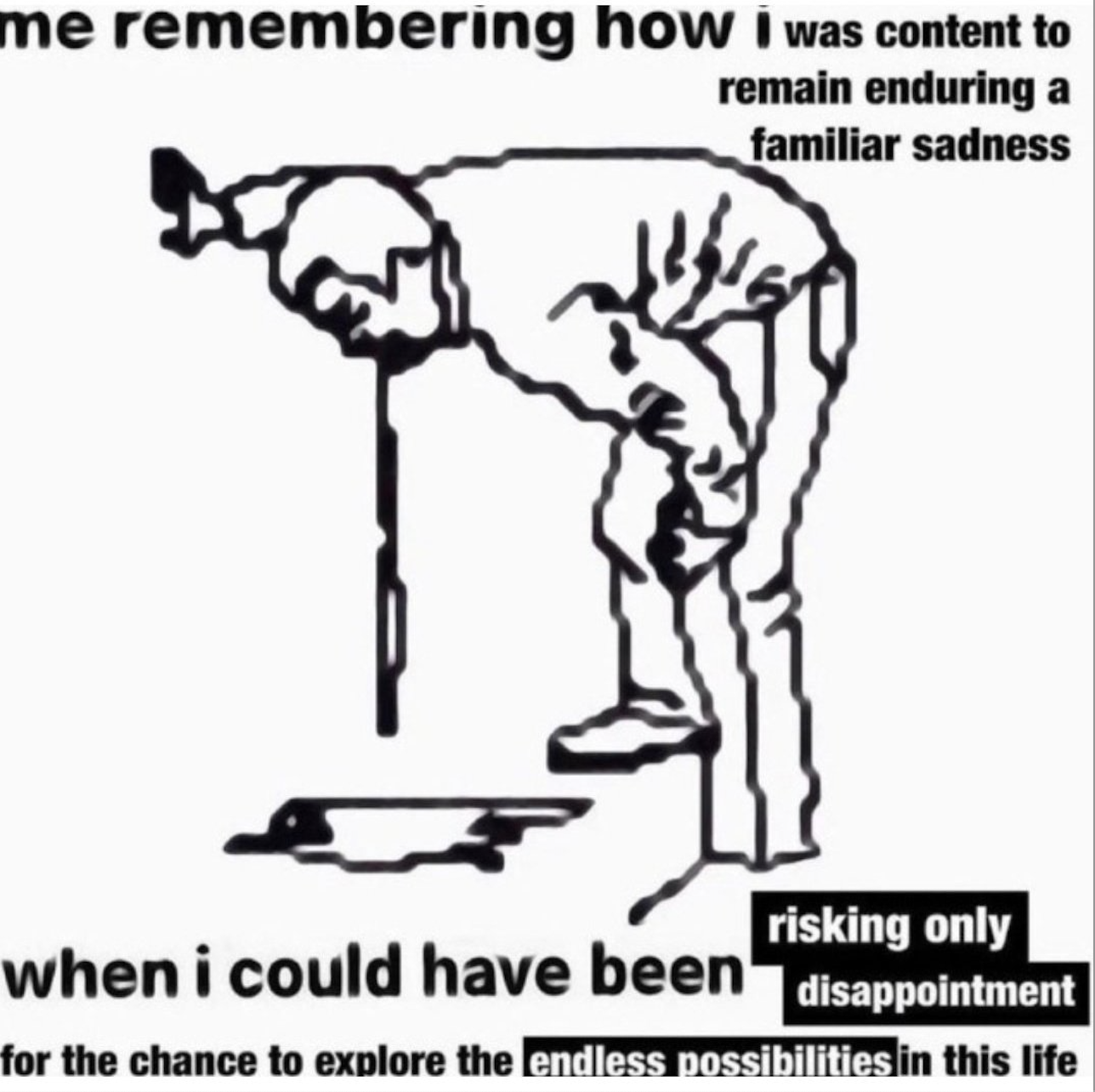gambling is good actually

Gambling is what makes us human. In this era of intense bureaucratization, what happens is that gambles are the last holes of freedom afforded to us.
- This is why technology is interesting, because it holds the same revolutionary potential as well as enforcement of bureaucracy
- China is example, technology acts as both a centralizing work of technology, but also nevertheless provides a form of potentiality because the government is incessantly afraid of it
- Bureaucracy, Mitchel: Economentality, statistics as the language and priestwork of the modern world
- Enchantments of Mammon
- development theory
- Violence inflicted is much greater in bureaucracies, police violence, insurance, DMV, etc
- States of exception as found to end
- “Are you going to live your life one adventure to the next?”
- “Macau is a state of exception”
- Both true, but that’s why there’s revolutionary potential
- Paris commune 2 months after stable government
- Psychopass - circumscribing of human potential
- This is what makes us human, that in the same revolution (turn) that could make everything go to shit, is the same drive that gives us freedom
- Crisis of modernity
- Personal crisis too, what is to be done?
- Solitary as the worst form of punishment, because it removes all gambles
- Technological determinism (flying cars, etc) has been swept away, but the traditional reaction is to be saddened, but I would say what has happened to tech is a good time. Technological determinism has been swept away in terms of technological potential, we no longer worry about flying cars or whatever, but technology has offered us a gift that the entire past of the left has never been able to achieve: a form of communication outside of the bureaucracy
One thing that I’ve been struggling with for quite a while as a software guy is: “what’s next?” In some ways, software engineering is this ever churning grinder, where you sacrifice yourself for a chance to turn the crank. On the other hand, it’s the most exhilerating ride I’ve ever had. In some ways, it’s the most perfect gamble, because what happens in software is that you always strive to tilt the odds in your favor, but in the end, it’s almost always margin.
Modernity is plagued by an overeager sense of bureaucratization, we’re all trapped by Fisherian capitalism, where ever expanding markets have wrapped themselves around us, with nearly no way out. The Graeberian call to action is to poke holes in the current reality, because that is where we’ll find our freedom. I think they’re both right, but I would take it one step further: gambling is what makes us human.
To take a step back, I want to describe my time in Iraq. Iraq holds such a grip on my conception of reality because it’s the first place I’ve ever lived in where the “normal” rules had been twisted into a completely unrecongizable form. Coming from south east Asia, I was already well versed with the conceptions of neoliberalism, and no depraved neoliberal and competitive SEA is. When I started my time in the states, it was different, but still felt like everyone obeyed the same neoliberal physics, the gravitational waves of money still worked the same, just with a few numbers tweaked.
Arriving in Iraq, basically everything was twisted on its head. Iraqi Kurdistan is a deeply third world neoliberal hellscape, comporable to SEA, but south Iraq was nothing of the sort. Sure, there were aspects about it, especially when in relation to interactions from the government, but it was simply the first place I had ever lived where the government was only ever spoken about in theory, and never acted. And yet, in this absense of government, the Iraqi conception of generosity (karaam and ghieera) were indictive of where the society had gone . And I honestly believe it is because it is one of the last places where religion has not been circumscribed into its own world.
It’s an easy cop-out to say that we’re enchanted by Mammon and greed, like some of my fellow travelers would say. But it’s even more easy to align yourself to this idea of bureaucratic management, to pen yourself into a job that has no risks.
To me, there’s two risks: the risk of ascending the mountain top, and the risk of leaving it all. To climb the mountain would be to, in the most serious of terms, git gud. One should strive to reach to the highest summit, to reach for ever more, to gamble all that you’ve done. The other solution is to risk it all by seeking out zones of exception, finding zones where you can surivive, and hop from one adventure to another.
They’re both fundalmental gambles, and both require you to put your skin in the game. What it does not allow for is for you to detach, both these things demand your full attention, and a full understanding of what we’re living for.
I just want to know, if I am flesh and bone, and if I’m fully grown or still growing, the great elision from humanities perspective that mathematics and statistics are the same, and the great blurring of statistics/economics/humanity